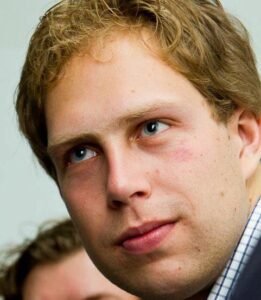‘Power relations in international development: the case of cash transfers in Africa’
By
Roeland Hemsteede, University of Dundee
The Sustainable Development Goals call for the implementation of nationally appropriate social protection systems. However, who decides what is ‘nationally appropriate’ and to what extent can governments of developing countries control this process when relying on development partners for financing and expertise? During this talk Roeland Hemsteede explores how power relations between national and international stakeholders shaped cash transfer programmes in Lesotho and Malawi. Cash transfers are small, regular payments to poor and vulnerable households. The presentation draws on interviews Roeland conducted with approximately 100 key policymakers in both countries. These have been analysed using a new framework for the analysis of social protection which combines insights around political settlements, organisational theory and decision-making, and processes of domination and resistance. The analysis explores how different stakeholders use different sources of power in attempts to influence the design and implementation of cash transfers… The paper offers insights into how power relations can shape development interventions. Roeland Hemsteede is Doctoral researcher focusing on the power dynamics around cash transfers in Southern Africa. He has spent considerable time doing qualitative research in Lesotho and Malawi for his PhD. He has presented his work at multiple conference and a journal article based on his work is currently under review. Previously, he has worked on economic growth policies in Africa and Asia as well as on WaSH in Mozambique as a research assistant. For his Master’s degree he explored the Black Economic Empowerment of farm workers in South Africa on which he published a book chapter last year. He has also worked as a project coordinator organising projects to promote the inclusion of youth with African roots in the Netherlands.
‘Citizen Investment in Renewable Energy: The Role of Financial Literacy’
By
Bridget Menyeh, University of Dundee
Overview
Financing the energy transition in Sub-Saharan Africa is a pressing challenge as current investment volumes are woefully inadequate. In the last decade, the role of citizen investors as important financiers of the energy transition is being realised. Through crowdfunding, citizens can invest in renewable energy however this is not without risks as they often have to make their own financial investment decisions often without expert advice. This talk will discuss findings from a financial literacy assessment of middle-class investors in Ghana and what this could for design of policy and financial education programmes. Bridget Menyeh is Doctoral researcher focusing on household investor preferences for renewable energy investments. She has worked as a development consultant in Ghana with the SNV Netherlands Development Organisation on projects such as the World Bank InfoDev Ghana Climate Innovation Centre and the Improved Fish Smoking and Livelihoods Project. She has also worked as a research associate at the University of Cambridge Judge Business School Centre for Alternative Finance, the EU Horizon 2020 CrowdFundRes project and at the Climate Bonds Initiative in London, United Kingdom. She has a master’s degree in Energy and the Environment from Lancaster University, United Kingdom, and an undergraduate degree in Biochemistry from the University of Ghana, Legon.
The Schedule:
DATE: THURSDAY 26TH SEPTEMBER 2019
VENUE: DALHOUSIE 1S03
TIME: 4.30 PM




